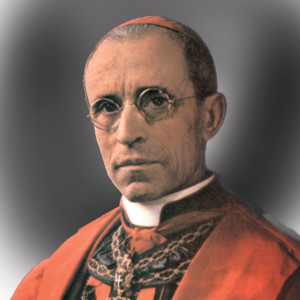
Pope Pius XII
St. Pius X (Pope from 1903 to 1914) was the last Pope to be canonized. Now, after almost six decades, causes for the last five Popes, with the exception of Benedict XVI, have been initiated. Don’t you think that’s too many? And why almost all at the same time?
Don Nicola Bux: Too many? I wish there were all saints in the people of God! It is true that it is being debated whether these causes have proceeded at an equal pace without succumbing to pressure from the media.
A bit of history: Paul VI (Pope from 1963 to 1978) decided to jointly initiate the processes of canonization of Pius XII (1939-1958) and John XXIII (1958-1963). He announced it almost at the conclusion of the Second Vatican Council, on November 18, 1965, in his speech during the Eighth Session. He said: “And so that all may be comforted in this spiritual renewal, we are suggesting that the Church piously remember the words and examples of our two last predecessors, Pius XII and John XXIII, to whom the Church herself and the world are so much indebted. And to this end we have decided to begin the canonical process for the beatification of those outstanding and very pious, and to us so dear, sovereign Popes… for the glory of God and the building up of His Church, to reconstruct their authentic and cherished figures for our veneration and that of the centuries to come.”
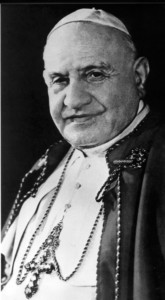
Pope John XXIII
Paul VI had been a personal witness, up close and on a daily basis, of the great faith, love, holiness, and doctrinal purity of the first. Paul had also enjoyed the esteem and sympathy of the second.
The simultaneous beginning of their causes was perhaps also due to contingent reasons: the “consolidation” of the Council through (we would say today) the “hermeneutic of continuity” of their pontificates. In fact, the differences of style and character between Pius and John did not impinge on the undisputed traditional structure. On the part of the Congregation for the Causes of Saints, there should be no deviation from this approach.
On the “updating” or “aggiornamento” of John XXIII, I refer to the explanation given by Pope Benedict XVI in his speech to the surviving bishops of the Council in October 2012 on the 50th anniversary of the Council’s opening (1962-2012).
Can you tell us at what stage these various causes are?
Bux: The cause of Pius XII, after the recognition of his heroic virtues by Benedict XVI, is waiting for the miracle for his beatification. It would seem there are some under scrutiny. For the canonization of John XXIII, the present Pope has dispensed from the miracle.
As for Paul VI, last December the council of the Congregation for the Causes of Saints unanimously approved his Positio, that is, the documentation of the process, and Pope Benedict promulgated the decree for his beatification, so much so that it may already take place within the Year of Faith, provided the miracle presented by the cause’s postulator, Father Antonio Marrazzo, is endorsed by the competent committees.
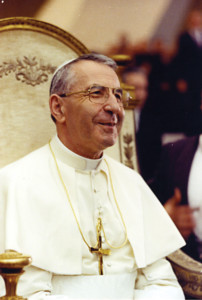
Pope John Paul I
About John Paul I, instead, it seems there have been some delays. After certification of a miracle attributed to him by the diocese of Altamura in Apulia, the impression was that his cause might have proceeded quickly toward beatification. In October last year, the cause’s postulator, the rector of the PUL (Pontifical Lateran University), Msgr. Enrico dal Covolo, delivered into the hands of Cardinal Angelo Amato, prefect of the Congregation for the Causes of Saints, the Summarium testium, the first of the four documents of the Positio on the heroic virtues of the Servant of God John Paul I. It seemed that the delivery of the rest of the documentation, the approval of which is preparatory to the proclamation of the heroic virtues of the candidate and also to the later recognition of the miracle, was imminent, but it did not happen. It is worth repeating that the reverse path is not allowed: only after the proclamation of the heroic virtues can one move on to the assessment of the alleged miracle.
The impression is that some causes proceed on a fast track, while others, like that of Pius XII, advance more slowly. What do you think?
Bux: Many are aware that there is media influence. There are also more and less active postulators. Perhaps there is even sympathy for the preferential treatment of a figure seen as more popular. Generally the “uncomfortable” words of each papal magisterium are silenced in favor of the smiling pictures of the protagonists.
Now, you may insist that the Lord is mercy and forgives and does not look at our sins, but if you do not also say that he said, “Go and sin no more,” you commit heresy, namely a biased choice of the truth about God and man. John XXIII wanted to use “the medicine of mercy”: it means that there was an evil in souls, sin, which needed to be cured. But it must be put together with what Pius XII said: “The sin of this century is the loss of the sense of sin” (radio message to the US National Congress in Boston, October 26, 1946). Pius was quoted by John Paul II in his Post-Synodal Apostolic Exhortation Reconciliatio et Poenitentia (Reconciliation and Penance) (December 2, 1984, n. 18).
In your opinion, what are the real reasons for this delay regarding Pius XII?
Bux: In short, it all begins with the play by the German Communist, Rolf Hochhuth, entitled The Deputy, which created the “black legend” of Pius’ alleged “silence” toward, and even complicity with, Nazism. Hence the accusations of anti-Semitism.
All documents published so far show that there is no trace of this. The appointment of two new postulators (due to the gradual aging of the former postulators, Fr. Molinari and Fr. Gumpel), could give us hope.
There is also the “Committee Pope Pius XII,” led by the attorney of the Roman Rota, Emilio Artiglieri, and other associations that may combine their forces to promote awareness of the Venerable Servant of God, starting from the diocese of Rome. Upon request, holy cards were printed in eight languages. Perhaps the cause of Pius XII is one of the “poor causes” referred to by Pope Francis: in fact, it is not known whether the postulation, the Diocese of Rome and the family have the means to promote it.
Pius XII does not have a “school” lobbying for his cause with initiatives and money. Yet, at conferences and anniversary Masses in the Vatican Grottoes on October 9, the day of his pious passing away, there were a few hundred people present, including cardinals, bishops, priests and religious. And essays and books on his great sanctity are coming all the time. In fact, Benedict XVI urged us to study the vast Magisterium of Pius. However, something has to be clarified. Philippe Chenaux, who teaches at the Lateran University, wrote: “The only difference between Pius XII and his successors lies in the understanding that each had of his responsibility as pastor of the universal Church: Pius XII — in this regard prisoner of a very traditional ecclesiology — wielded his authority more in the strict sense of the defense of the rights of the institution and its members (see, for example, the efforts of Vatican diplomacy in favor of baptized Jews); John XXIII and his successors viewed their authority more in the ‘prophetic’ sense of being the moral conscience of mankind” (Vita pastorale, June 6, 2011, 89).
Therefore, Pius represents “traditional ecclesiology” (he wrote Mystici Corporis, “Of the Mystical Body”) and the “defense of the institution” (but if these are negative things, why did Jesus Christ establish the Church? For her to liquefy before her enemies?). But Pius is thought to represent less the “moral conscience” shown by his successors (but what did Pius do before, during and after the war?). It is Christ who wanted the Church because the Church was in itself a new humanity. Chenaux appears to be a prisoner of ideological bias and the dualism between the Church and the world, paying tribute to the dominant culture.
As the driving spirit behind the Committee for Pope Pacelli, are you planning other initiatives?
Bux: I think that the beatification and canonization of Pius XII will be the visible and effective sanatio (healing) of that rupture and discontinuity between the pre-and post-conciliar Church. I am convinced that the truth is making inroads because, as Blessed John Henry Newman used to say, it reveals itself only at the price of the sacrifice of those who defend it. An educational biography of Pius XII, entitled: Pio XII. Il Papa della carità (“Pius XII: The Pope of Charity”), authored by Artiglieri, is due to be published soon. This book highlights the extraordinary work of universal material, spiritual and intellectual charity of Pope Pacelli, both during, but also after, the war.

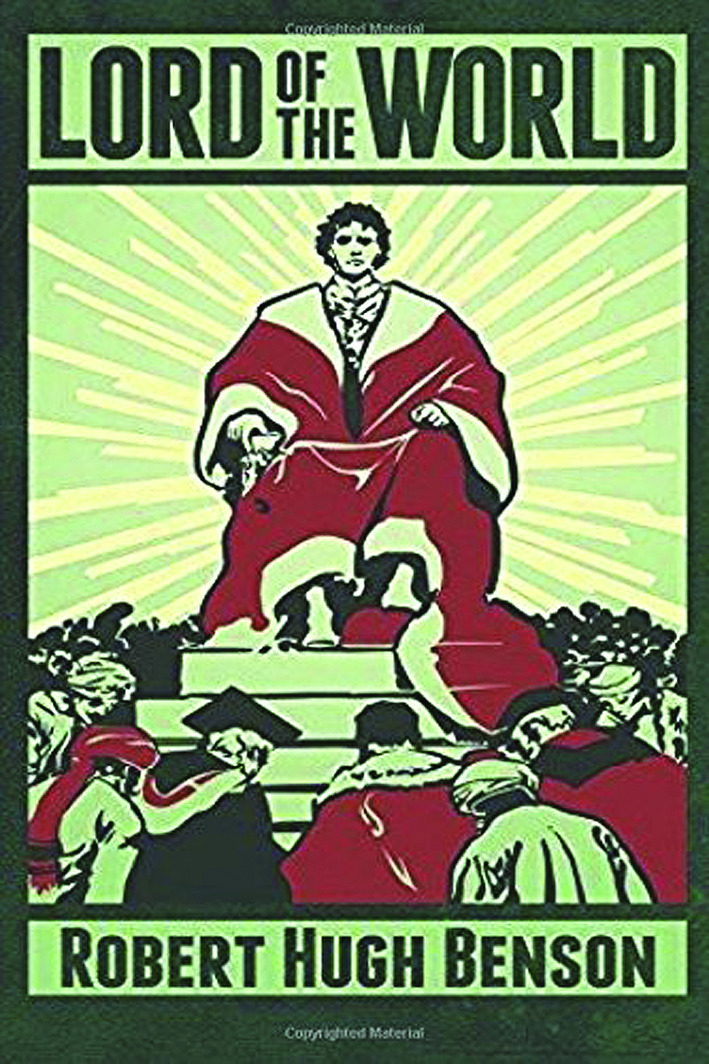
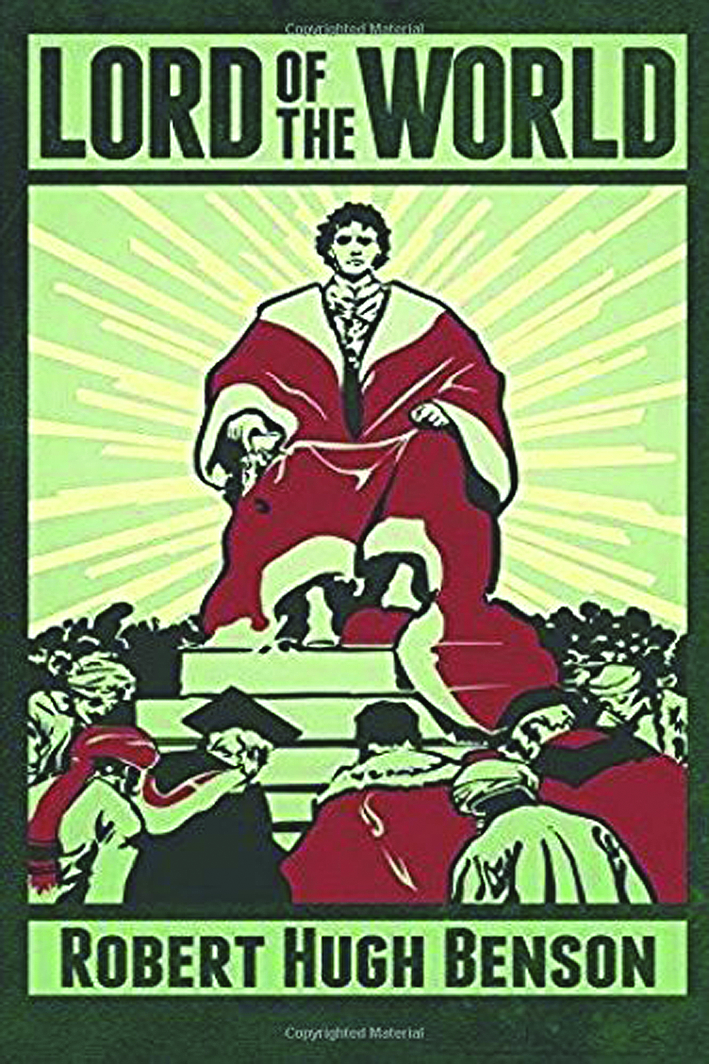
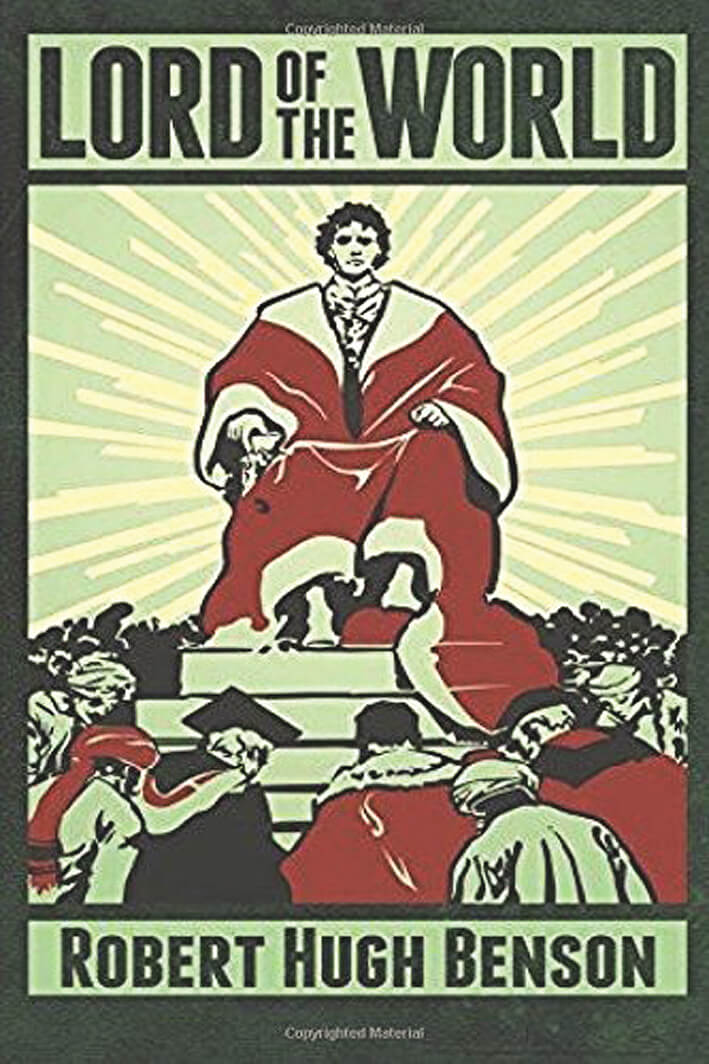
Facebook Comments